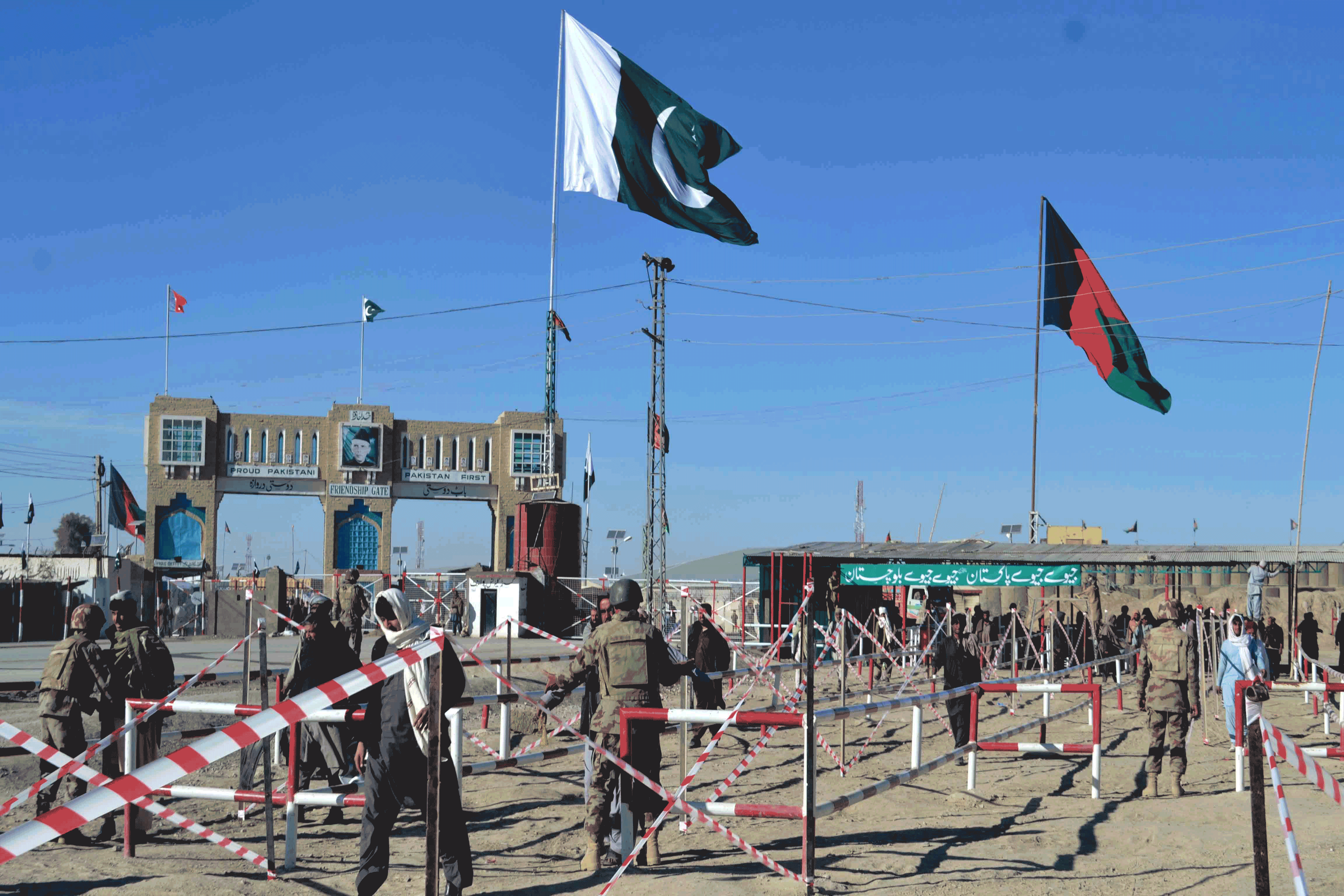Deepening divide
The deterioration of relations between the ‘brotherly’ nations of Afghanistan and Pakistan has accelerated further after the regime change in Pak

Amid the fast-changing political developments in Pakistan, particularly after the recent regime change putting Shehbaz Sharif at the helm, relations with Afghanistan seem to have nosedived, reaching a new nadir. It could be more than a coincidence. The developments surely merit a closer look and a thorough stocktaking.
Despite Pakistani intelligence's assessment of likely hostility along the Pakistan-Afghanistan borders, there have been ceaseless attacks from the Afghanistan side. The attacks were so fierce and rattling that on April 17, Pakistan had to formally urge Kabul to secure the Pak-Afghan border region ensuring strict action against those responsible for terror activities, in the interest of peace and progress of the two `brotherly' countries. Pakistan's Foreign Office (FO) in Islamabad has categorically said that there has been a significant increase in border hostilities in the last few days. It further said that of late, elements of banned terrorist groups in the border areas, including the Tehreek-e-Taliban Pakistan (TTP), have continued to attack Pakistan's border security posts. More specifically, on April 14, seven Pakistani Army soldiers were killed in North Waziristan district by terrorists operating from Afghanistan. This is very unsettling for the Pakistan military establishment.
Meanwhile, flexing their muscles rather brazenly, the Taliban authorities warned Pakistan of serious consequences on April 16 after five children and a woman were killed in Afghanistan in rocket attacks launched by the Pakistani military in a pre-dawn assault along the border. It is worth recalling that the border tensions between Pakistan and Afghanistan have spiralled since the Taliban seized power last year, with Islamabad claiming that militant groups were carrying out attacks from the Afghan soil.
The Taliban, however, deny harbouring Pakistani militants but are also infuriated by a fence Islamabad is erecting along their 2,700-kilometre (1,600-mile) border known as the Durand line, which was drawn up during colonial times. There are allegations by the Afghanistan Taliban that the Pakistani helicopters bombarded four villages near the Durand line in Khost province. Afghanistan said it was using all options to prevent repetitions (of such attacks) and calling for their sovereignty to be respected. They said the Pakistani side should know that if a war starts it will not be in the interest of any side. It would cause instability in the region. Hence, the heat on the Pak-Afghan borders is on the rise.
Meanwhile, Afghan Foreign Minister Amir Khan Muttaqi lodged a protest with Pakistan's Ambassador in Kabul against what he described as 'military violations' committed by Pakistan. Afghanistan's leading private TV channels showed footage of houses destroyed in the assault in Khost perpetrated by the Pakistan armed forces. All the targeted people were innocent civilians who had nothing to do with the Taliban or the government.
Later, hundreds of civilians of Khost poured into the streets chanting anti-Pakistan slogans on April 16, demonstrating that there is a growing anti-Pakistan sentiment prevailing in Afghanistan. It is also worth mentioning that the border areas between the two countries have long been a stronghold for militant groups such as the Tehreek-e-Taliban Pakistan (TTP), which operates across the porous frontier with Afghanistan. The Afghan Taliban and the TTP are separate groups in both countries but share a common ideology and draw from people who live on either side of the border. This shows the extent of religious indoctrination in both the countries.
Judging by these armed border hostilities between Afghanistan and Pakistan, also resulting in deaths of civilians and innocents on the Afghan side as well as casualties among Pakistan security forces, it would appear that all is not well between the two countries.
It is surprising that much before the Taliban-led regime in Kabul completes one year in office, Pakistan and its western neighbor Afghanistan are falling apart. This looks more intriguing because it is Pakistan and its powerful ISI which helped form the Taliban government in Kabul, not only in its structure but also in allocation of ministries. The ISI, in particular, carried out operations from neighboring Peshawar to see that no foreign power was able to help the Taliban so that Pakistan maintained a leverage over the Kabul dispensation to ensure that Islamabad ruled the roost. All are now conveniently forgotten.
However, the honeymoon period seems to be nearing an inglorious end. The biggest and immediate gainer out of this development would be the terror groups making peace and tranquil look distant. With Pakistan tied up with settling its own new government in Islamabad and several political challenges of the new regime, the Afghanistan-Pakistan acrimony on the borders is likely to stay for some more time, periodically giving rise to severe irritants among the two countries that once took pride in calling each other as brothers.
The writer is a retired IPS officer, a security analyst and a former National Security Advisor to the PM of Mauritius. Views expressed are personal



